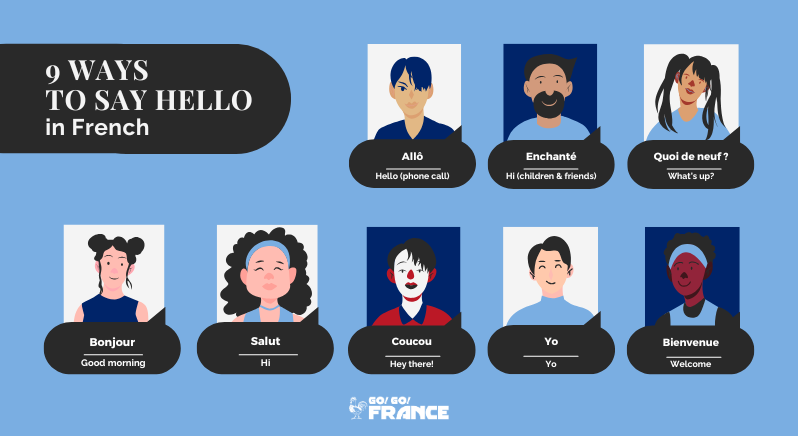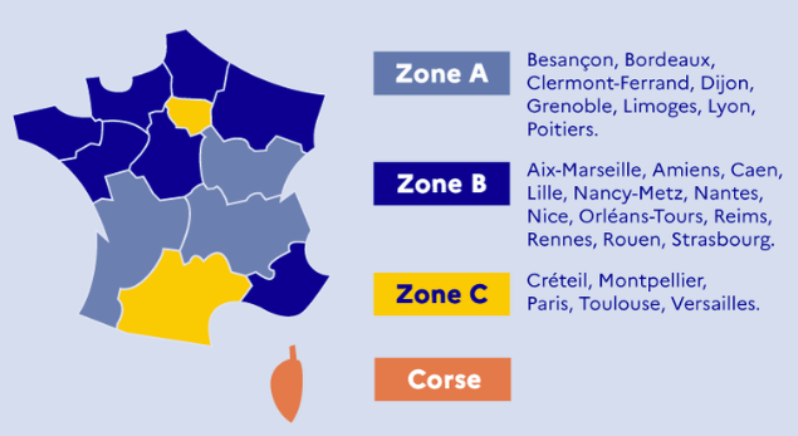For international students planning to study French in France, there’s a playful, puzzling aspect of the French language that textbooks might not cover: Verlan. This intriguing form of slang turns everyday French on its head, both confusing and fascinating non-native speakers.
In this article, we tell you all you need to know about verlan and share with you the most used verlan words in the French language.
What is Verlan?
Verlan is a form of French argot (slang) that involves reversing the syllables of words. The name “verlan” itself is derived from reversing the syllables of the word “l’envers,” which means “the reverse.” This linguistic twist is not just a novelty; it’s embedded in everyday communication among young people, and it continuously evolves with the language itself.
The Origins of Verlan
The practice of verlan dates back to the mid-20th century, although its precise origins are hard to pinpoint. It likely began as a form of secret communication among marginalized groups, particularly in the suburbs of Paris, as a way to speak openly without being understood by authority figures. Over time, verlan has moved from these clandestine beginnings into mainstream French culture, used by all demographics but predominantly by the youth.

From Verlan to Standard French
Today, verlan is so integrated into the French language that some verlan words have become part of standard French. Several verlan words have been added to respected French dictionaries such as Le Petit Robert and Le Petit Larousse.
Examples include:
- Meuf (from “femme,” meaning woman)
- Beur (from “arabe,” used to describe a French person of North African descent)
- Rebeu (reverse of “beur”)
- Zarbi (from “bizarre,” meaning weird)
It’s a testament to how dynamic languages are, adapting and evolving with changes in society. Verlan is particularly popular among teenagers and young adults, often used to assert identity or group affiliation.
10 Popular Verlan Words
To give you a head start in deciphering this playful linguistic code, here are some of the most used verlan words nowadays by French people:
- Meuf – Derived from “femme” (woman)
- Ouf – From “fou” (crazy)
- Reuf – From “frère” (brother)
- Keum – From “mec” (guy or dude)
- Teubé – From “bête” (stupid)
- Zarbi – From “bizarre” (weird)
- Chelou – From “louche” (shady or sketchy)
- Relou – From “lourd” (annoying or heavy)
- Téci – From “cité” (housing projects or estate)
- Beur – From “arabe” (Arab)
These terms often carry nuances that go beyond the literal meanings of their non-verlan counterparts, embodying feelings, attitudes, or even social critiques.
If you are curious about learning French, here are 10 slang words you should know: https://gogofrance.com/en/blog/classic-french-slang-words/

How to Learn and Use Verlan
For international students, understanding and perhaps using verlan can be a fun way to deepen your cultural immersion in France. It’s a social key to unlocking friendships and deeper interactions with locals.
Listening to contemporary French music or watching modern French films can provide practical examples of verlan in use. Also, trying to make French friends and use verlan in casual conversation with them can be an entertaining way to enhance your language skills, though it’s advisable to start with the basics of French first!
Now It’s Your Turn!
For those coming to France to study, embracing verlan can enrich your understanding of French as a living, breathing cultural tool. Now it’s your turn, when you feel ready to start, contact us to get your life and study in France journey started.
At Go! Go! France, we’re dedicated to making your dream of studying in France a reality. Through our tailored services, comprehensive support, and student-first approach, we simplify the application process and pave the way for your educational adventure in France.











